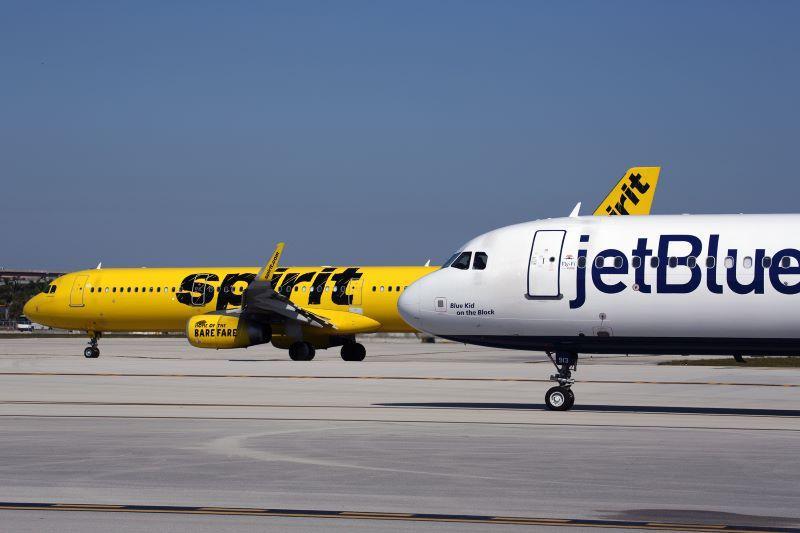
This week’s top air transport stories include a U.S. federal judge ruling that blocked the merger between JetBlue Airwaysand Spirit Airlines, and the ongoing U.S. investigation review following a Jan. 5 inflight loss of a door plug from an Alaska Airlines Boeing 737-9.
JetBlue Airways and Spirit Airlines will not be allowed to merge, a federal judge has ruled, in a decision that stops short at permanently blocking a future combination of the two.
Data from 40 Boeing 737-9 door plug assembly inspections conducted by Alaska Airlines and United Airlines is in the hands of an FAA team of subject-matter experts tasked with determining whether the work is sufficient to clear grounded aircraft for revenue service.
Boeing tapped retired U.S. Navy Admiral Kirk Donald to lead an independent review of the company’s quality system and supplier oversight. The review will examine Boeing’s commercial airplane quality management, including “quality programs and practices in Boeing manufacturing facilities” as well as its supplier quality oversight.
In airline news, Delta Air Lines firmed an order for 20 Airbus A350-1000s plus options for an additional 20 widebodies, as it looks to replace aging Boeing 767s.
Indian LCC Akasa Air firmed an order for 150 Boeing 737 MAX aircraft, which includes both 737-10s and the 737-8-200 version.
Southwest Airlines reported improvements in this year’s winter operations after developing a new playbook following last year’s operational disruption.
Japan Airlines announced a leadership change that will see Mitsuko Tottori promoted to become the carrier's first female president. Tottori will take over as JAL Group president and representative director on April 1. She will replace current president Yuji Akasaka who will become the airline's chairperson on the same date.
Air France-KLM is withdrawing from a strategic air cargo partnership with French shipping group CMA CGM that began less than a year ago, saying the arrangement had not been able to reach its full potential because of regulatory constraints.
In regulatory news, European Union Aviation Safety Agency (EASA) published initial proposals to regulate ground handling across airports in the 27-nation European Union (EU) in what it describes as a way of improving standards and cutting the number of audits that airports and ground handling companies have to undertake.
In sustainability news, Germany’s federal government is close to cutting more than €2 billion ($2.2 billion) in funding for sustainable aviation fuel (SAF) research and infrastructure development as it grapples with the fallout of a far-reaching court ruling that declared the 2024 federal budget unconstitutional.
The Hawai’i Seaglider Initiative has been launched to advocate for the adoption of electric wing-in-ground-effect vehicles as an affordable and accessible option for interisland transportation. Alaska Airlines, Hawaiian Airlines, Japan Airlines, Mokulele Airlines and United Airlines are among the 20 launch members of the initiative, along with electric seaglider developer Regent Craft.
Hydrogen-electric propulsion startup ZeroAvia signed an MOU with Verne to evaluate the use of cryo-compressed hydrogen storage on aircraft. Verne is a startup developing cryo-compressed hydrogen systems for heavy-duty trucks.
In airport news, Athens International Airport (ATH) will offer 30% of its shares on the Athens Stock Exchange in an initial public offering (IPO) that will see the Greek government significantly cut its holding in the airport.
Plans to build a new international terminal at Newcastle Airport in Australia are set for completion in 2025. Canberra has allocated A$55 million ($36 million) to the project, which will see the upgrading of the airport runway to Code E status. This will allow Newcastle Airport to handle widebodies such as the Airbus A330 and Boeing 787.





